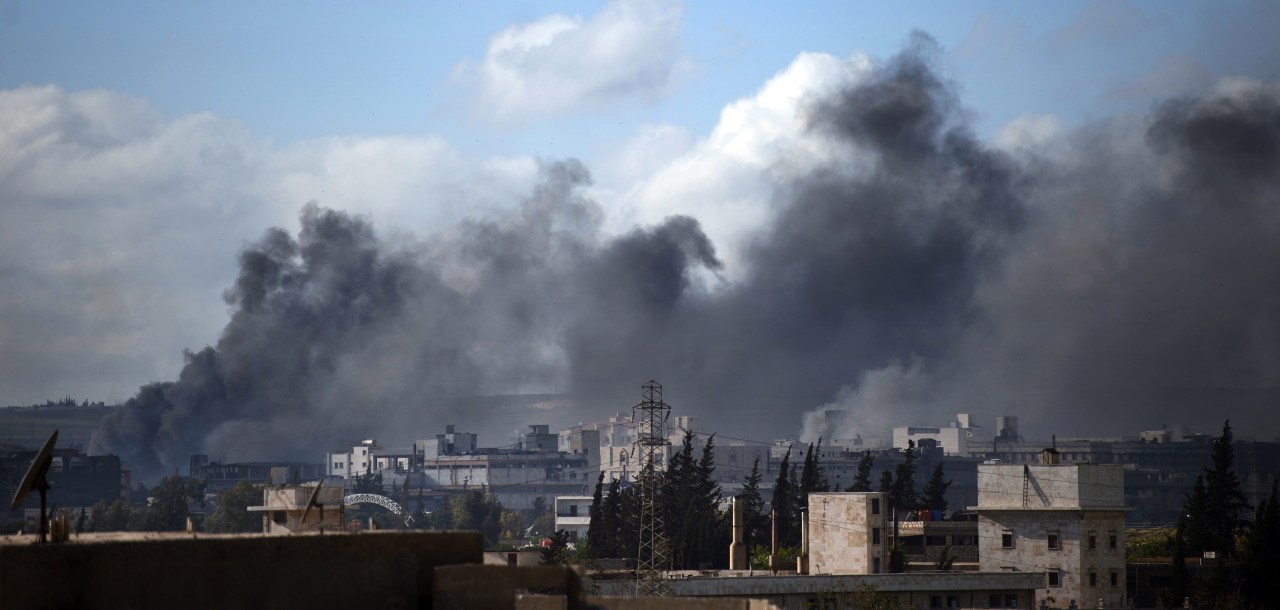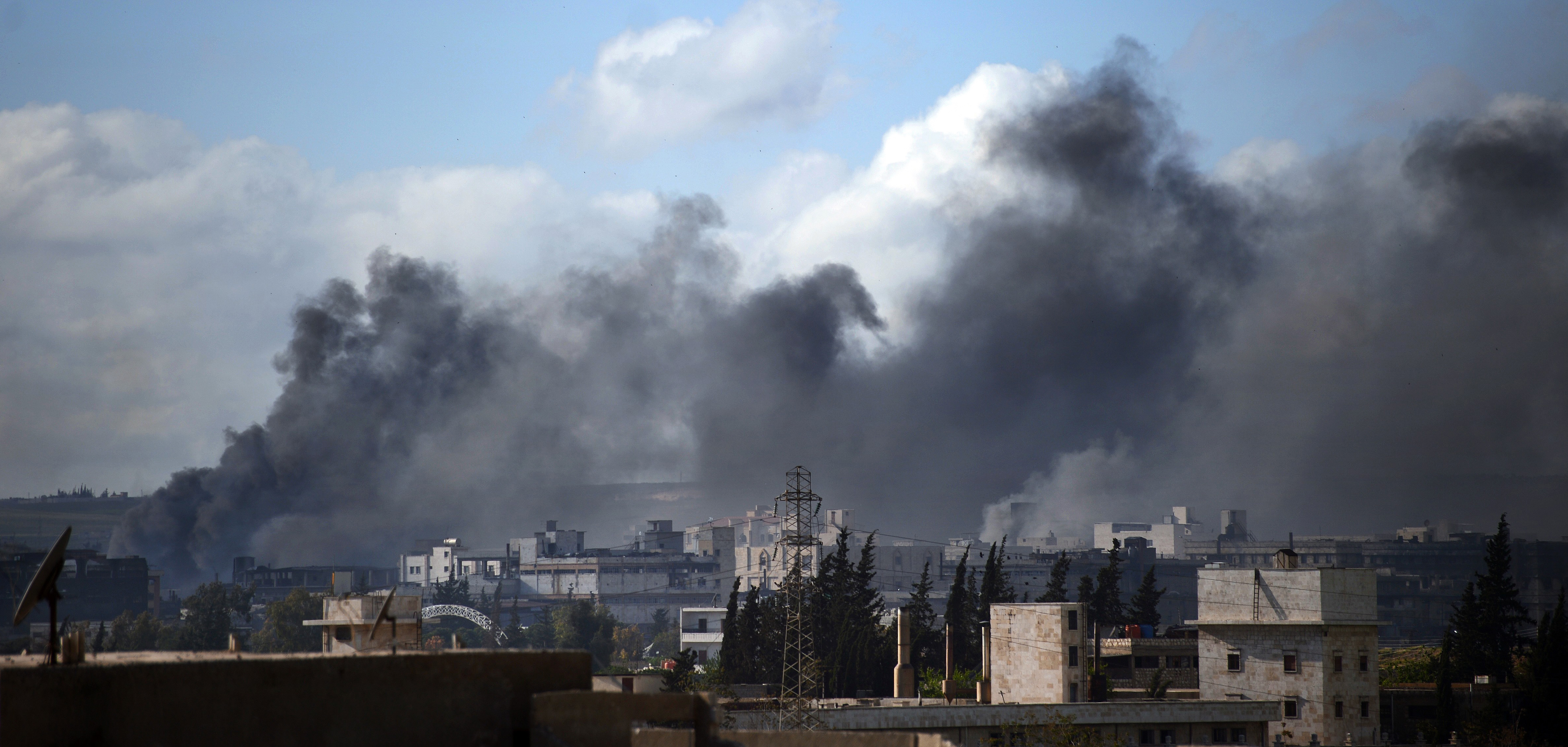Boris Johnson makes a strong case in today’s Telegraph that even if the west wanted to intervene in the Syrian civil war the point at which is was plausible to do so has long since passed. The benefits of intervention no longer outweigh the risks. Meanwhile, Paul Goodman reiterates that there’s no obvious British national interest in intervening. It is difficult to disagree with either analysis.
Across the Atlantic, meanwhile, Andrew Sullivan is appalled by the Obama administration’s decision to offer a modest quantity of modest weaponry to the Syrian opposition. This isn’t just unwise; it’s close to insane, he suggests. Don’t be fooled into thinking this will shorten the conflict or save lives, he argues.
But what if it’s not supposed to shorten the conflict or save lives? What if American policy has the opposite aim in mind? I can’t help but think Dan Drezner’s analysis seems plausible:
[T]his is simply the next iteration of the unspoken, brutally realpolitik policy towards Syria that’s been going on for the past two years. To recap, the goal of that policy is to ensnare Iran and Hezbollah into a protracted, resource-draining civil war, with as minimal costs as possible. This is exactly what the last two years have accomplished…. at an appalling toll in lives lost.
This policy doesn’t require any course correction… so long as rebels are holding their own or winning. A faltering Assad simply forces Iran et al into doubling down and committing even more resources. A faltering rebel movement, on the other hand, does require some external support, lest the Iranians actually win the conflict. In a related matter, arming the rebels also prevents relations with U.S. allies in the region from fraying any further.
So is this the first step towards another U.S.-led war in the region? No. […] Everything this administration has said and done for the past two years, screams deep reluctance over intervention. Arming the rebels is not the same thing as a no-fly zone or any kind of ground intervention. This is simply the United States engaging in its own form of asymmetric warfare. For the low, low price of aiding and arming the rebels, the U.S. preoccupies all of its adversaries in the Middle East.
The moment that U.S. armed forces would be required to sustain the balance, the costs of this policy go up dramatically, far outweighing the benefits. So I suspect the Obama administration will continue to pursue all measures short of committing U.S. forces in any way in order to sustain the rebels.
I think that’s right. The Obama administration is not, despite the recent promotions handed to Susan Rice and Samantha Power, in the business of rehabilitating liberal interventionism. On the contrary, this is a remarkably cold-blooded administration.
Washington doesn’t much care about Syrian lives (and it bets, with good reason, that public opinion in other western countries doesn’t really care about them either). Humanitarian appeals for intervention leave the Obama administration unmoved. The whole Syrian agony isn’t worth the bones of a single US Navy pilot.
If peace in Syria is neither imminent nor useful to American interests, the chilly logic of realpolitik dictates that the west help keep the Syrian opposition fighting but that any assistance be limited for fear that the rebels might actually win. Since we’ve no idea what any replacement Syrian regime would look like – though we have a pretty good idea it would be a pretty rancid regime – the status quo of an ungoverned Syria is, for the time being anyway, preferable to at least some, and perhaps all, of the alternatives.
As Professor Drezner says, calling this a “morally questionable” approach might under-estimate its frosty “realism”. And, of course, like every other possible Syrian policy it comes with risks of its own. There are no good options in Syria. There aren’t really even any acceptable ones.
But if we’ve learnt anything about Obama these past few years it is that he’s less emotional than the average American president. Bill Clinton may argue that you need to intervene in Syria because otherwise you look like “a wuss” but I fancy Obama finds that logic contemptible and juvenile. There’s a ruthless streak to Obama’s style that has been apparent, really, ever since he first went hunting for Hillary Clinton in the 2008 Democratic primary.
Now little of this is the kind of stirring, inspirational stuff of the Obama legend. But all the lofty rhetoric camouflaged an administration that is, in the main, strikingly non-ideological. As a general rule, and especially in foreign policy, it prefers hard pragmatism to the comforts of grand theory. That is, of course, a reaction against its predecessor but it is more than just that.
Since this is a war between rival versions of Islam and a battle, in the end, for regional supremacy, one of the challenges is to prevent it from leaking into other countries. That in turn means the Syrian war must drag on for some time yet and that, for now, it may not be in the American or western interest for either side to prevail. Settling the Syrian question will not end the matter and may, from a western point of view, make matters even more dangerous and complicated than they currently are.
This may not be a very noble view of the world or a satisfying foreign policy that allows anyone to hitch their wagon to Team Good Guys. But there you have it. It is almost as though Henry Kissinger still stalks the White House.








Comments